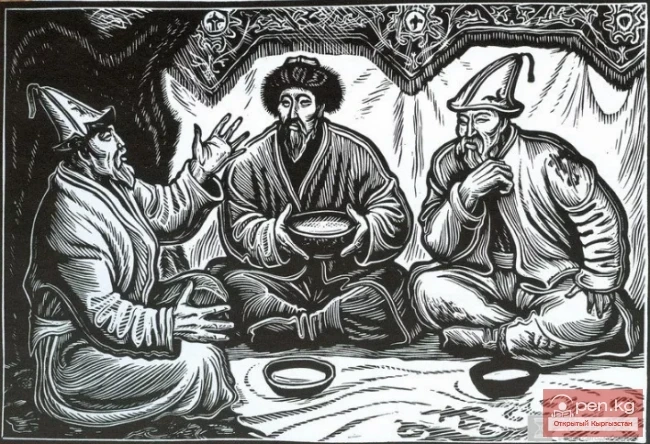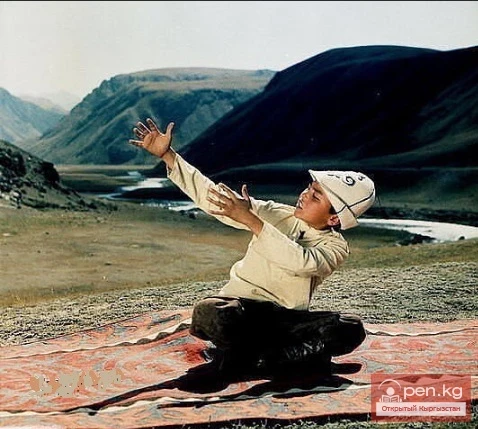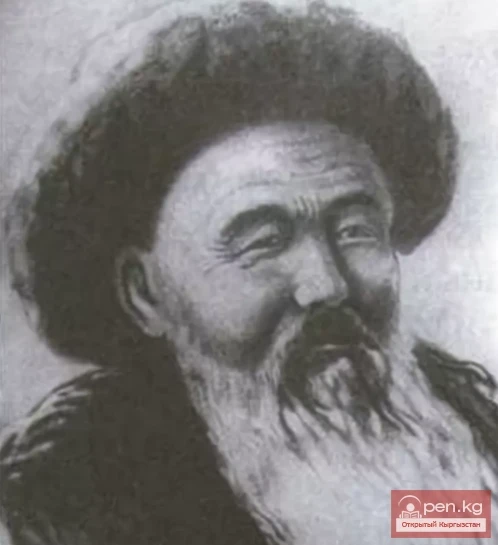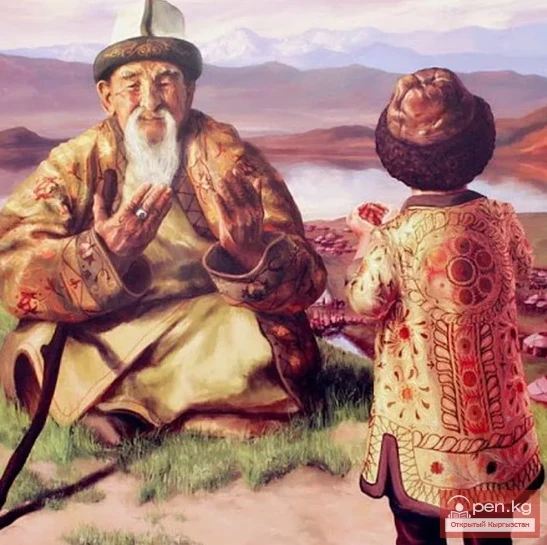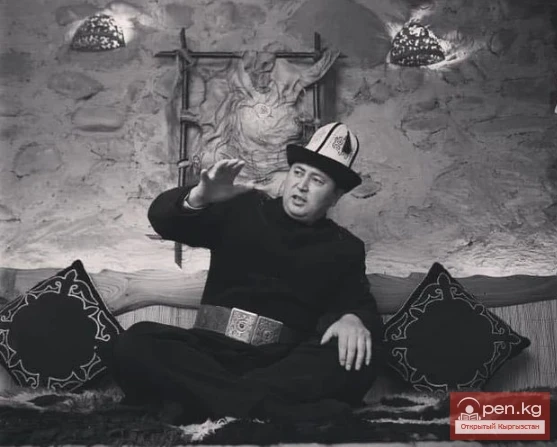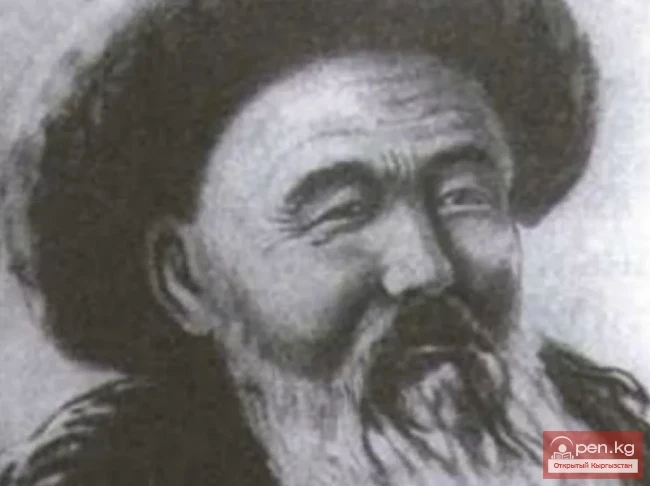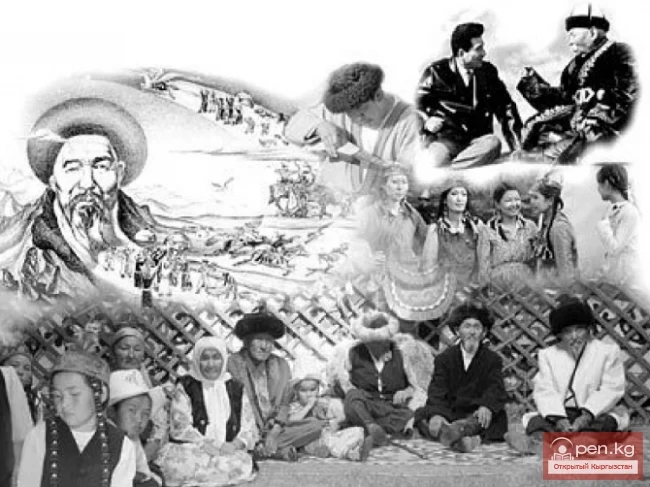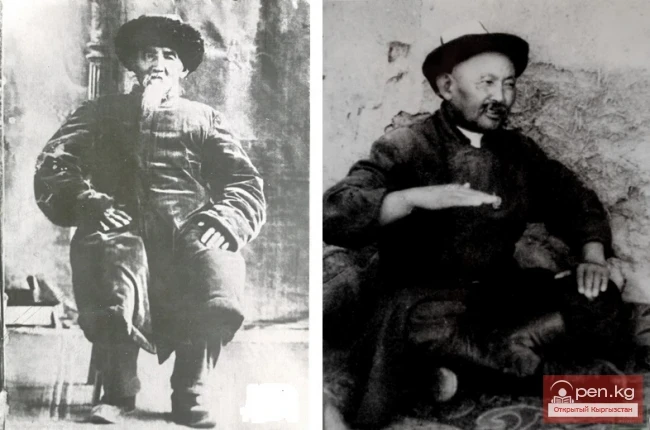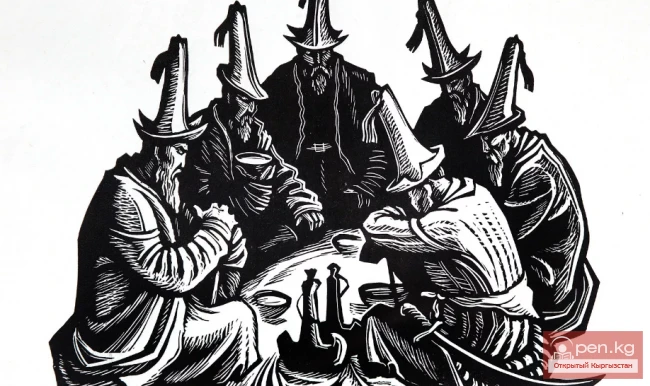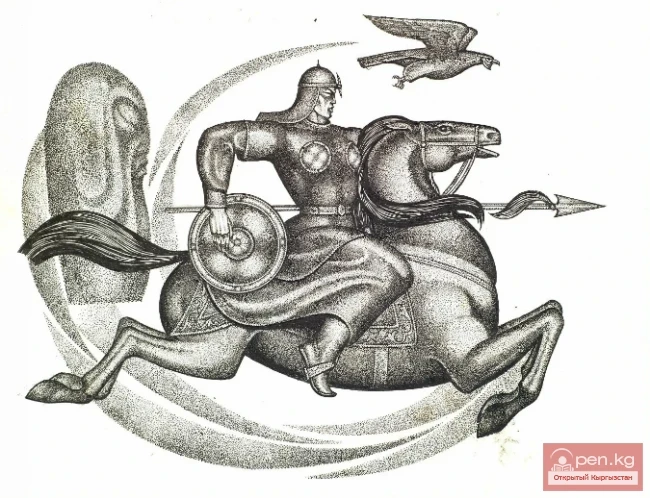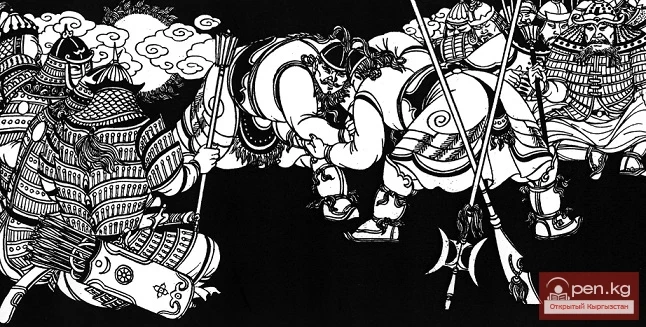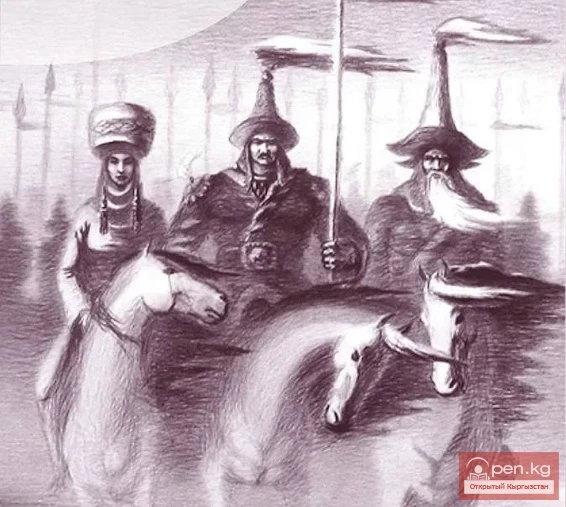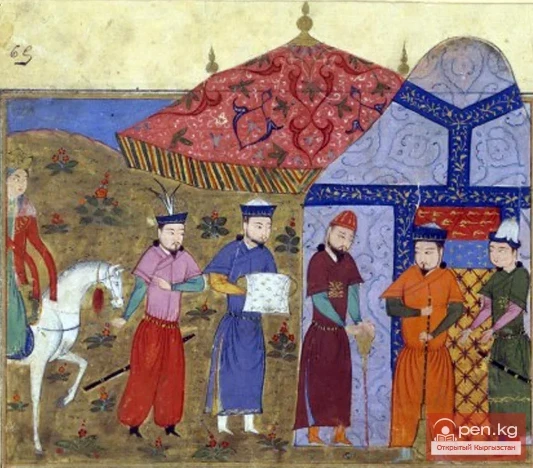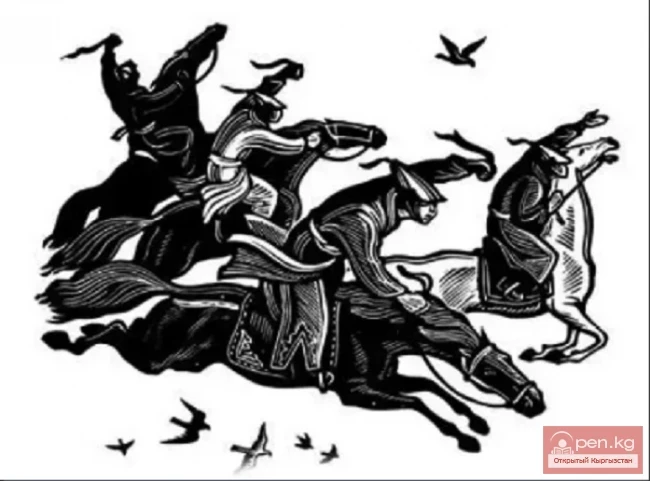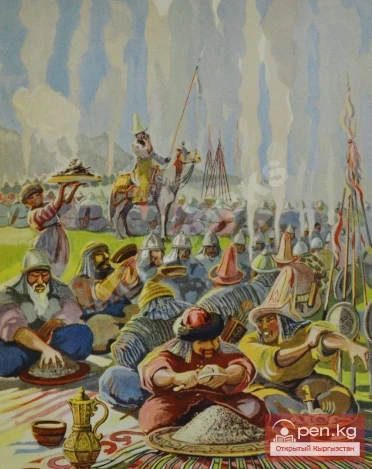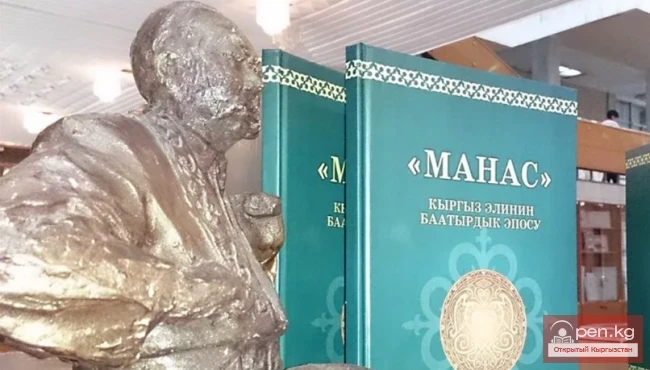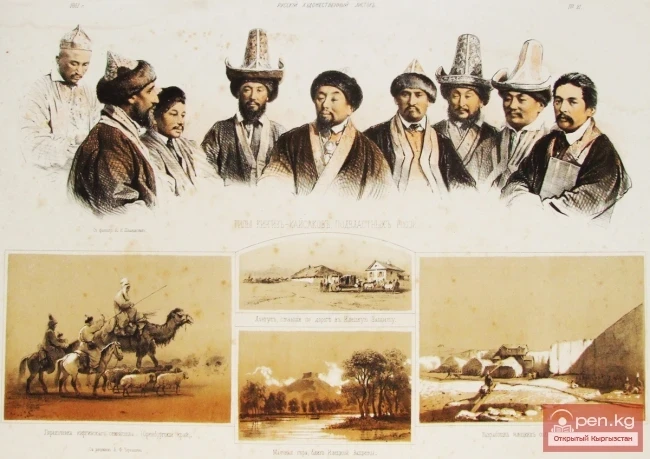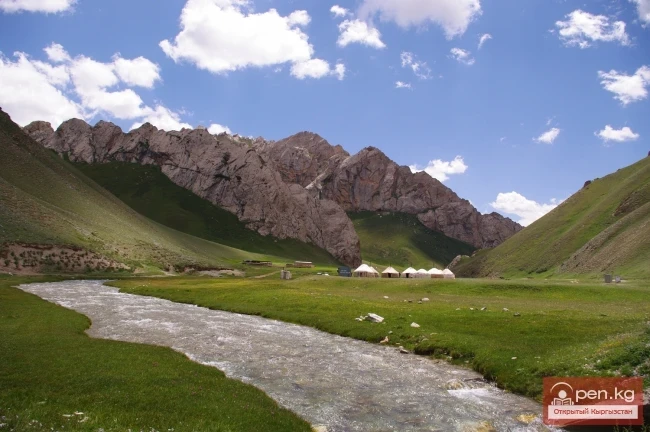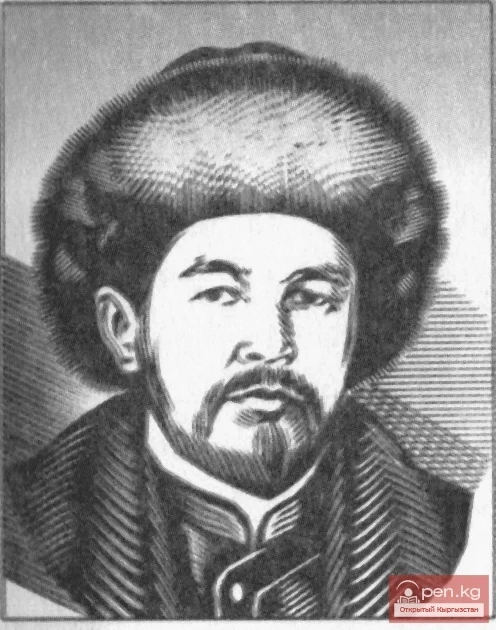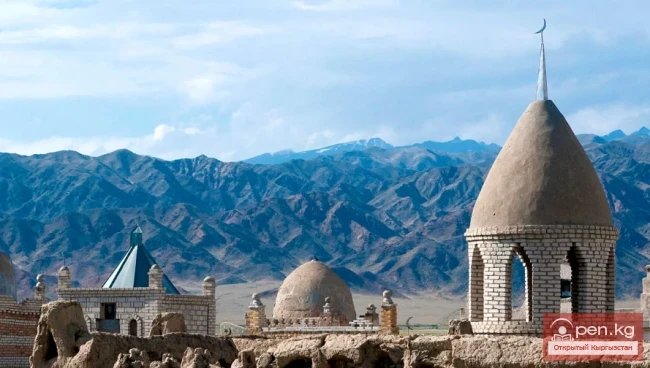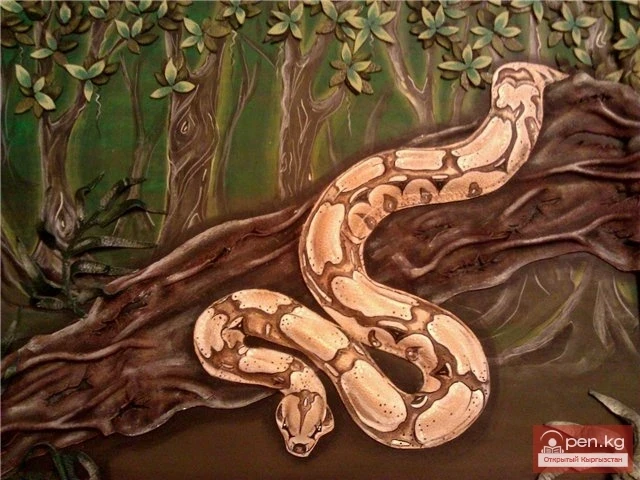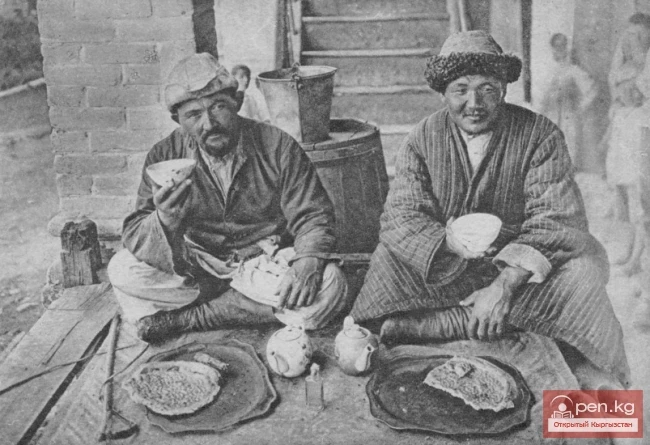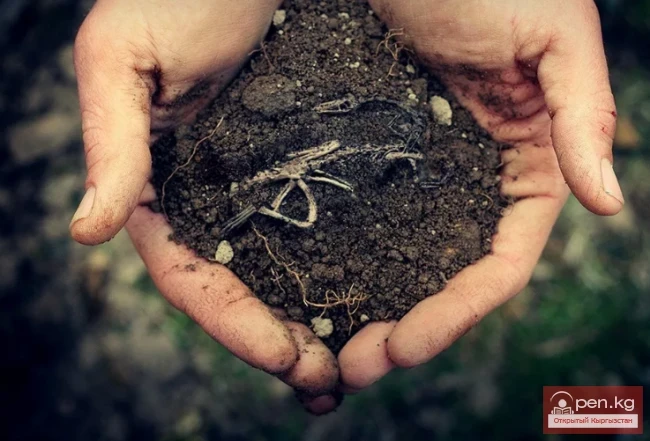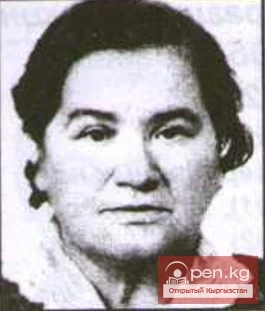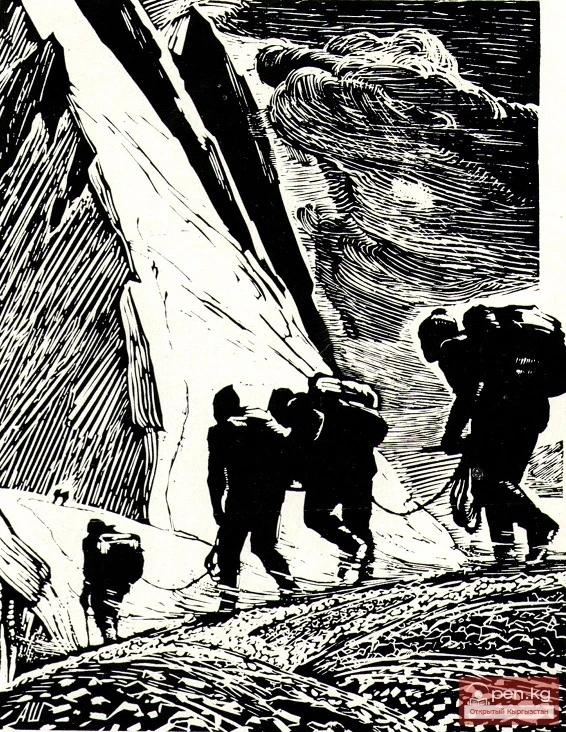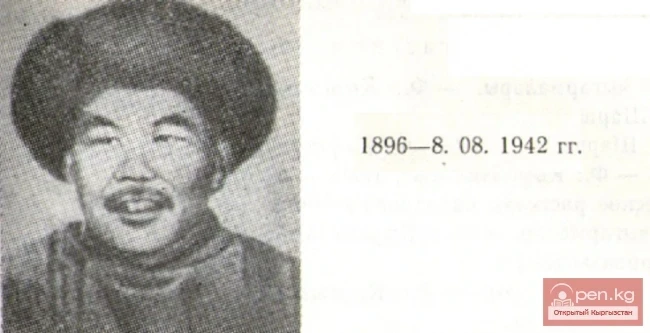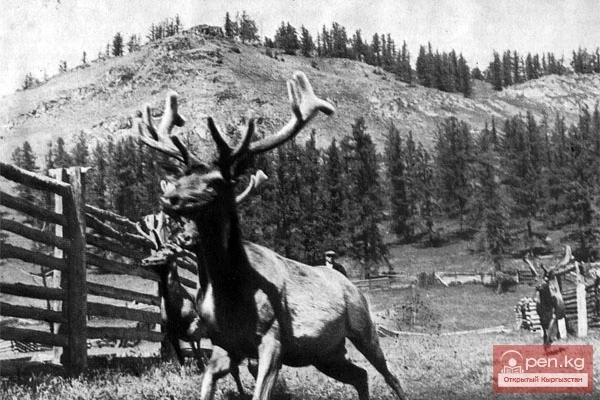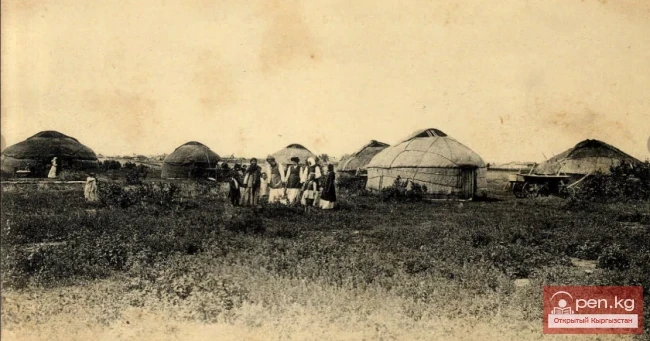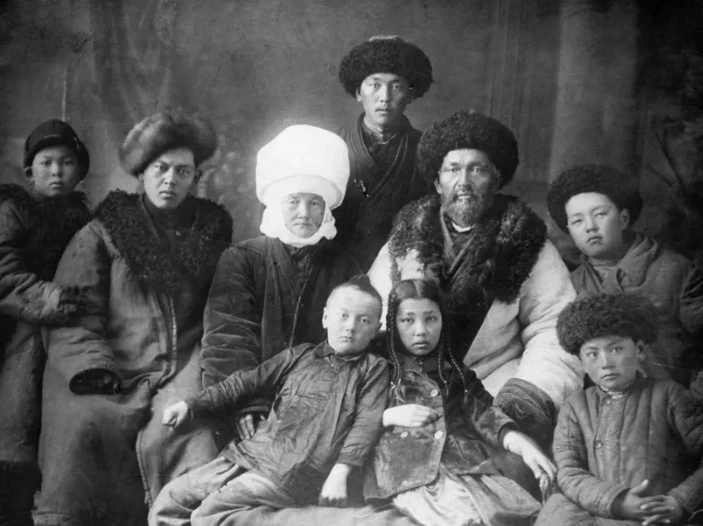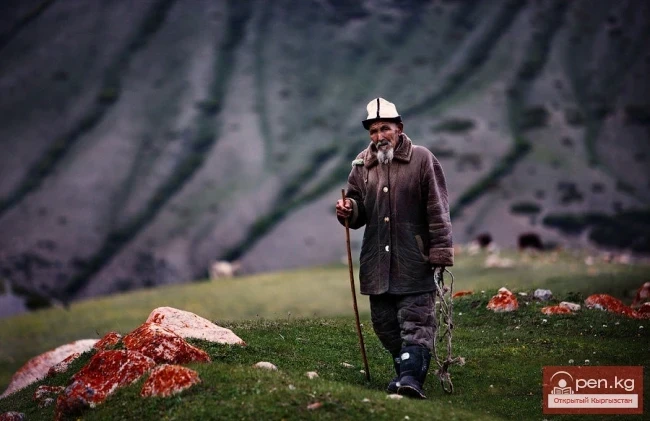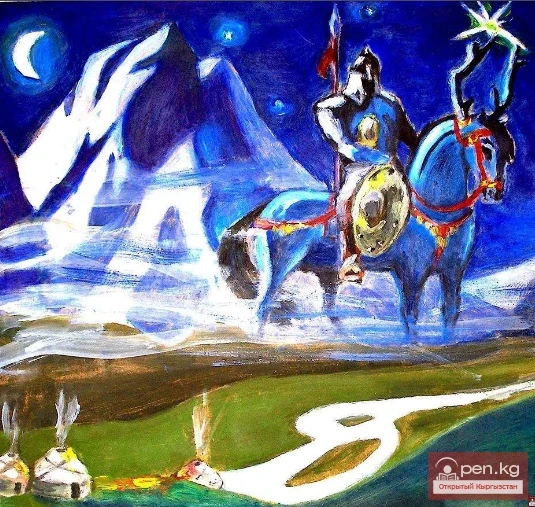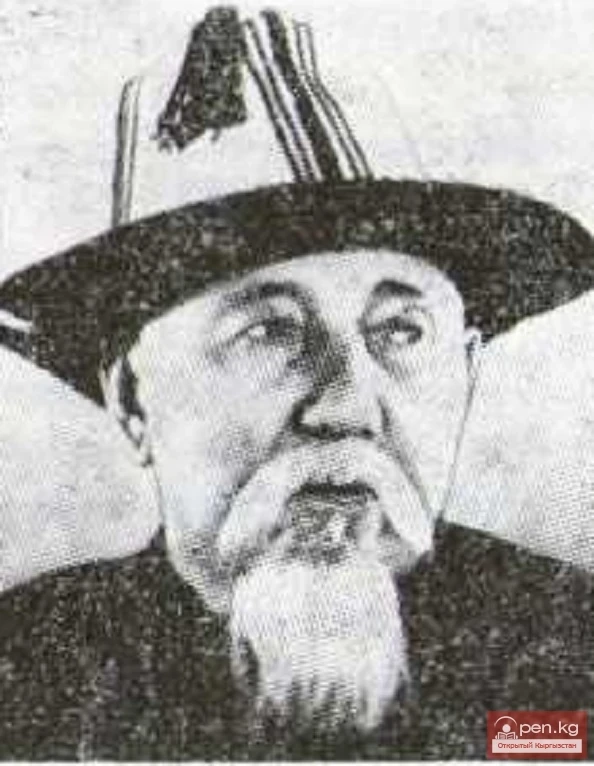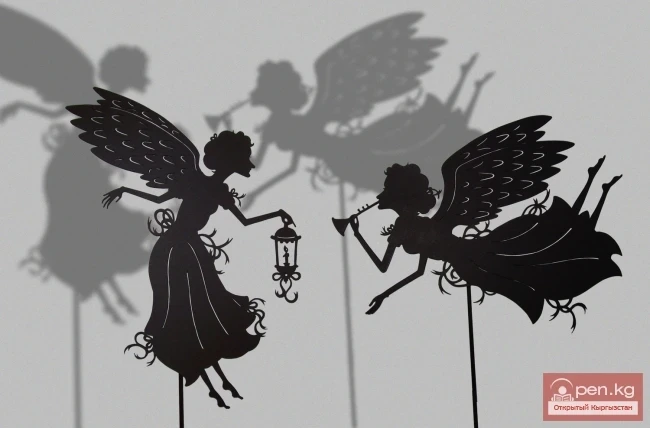First Singers
The collection and study of biographical data on the singers of the "Manas" epic began only after the Great October Socialist Revolution. Therefore, the material we have is primarily a description of the life and activities of those singers who lived relatively recently or are still alive today.
The further away from our era the singer lived, the more scarce the information about him becomes. For a number of singers from the 19th century, we only have fragmentary data indicating that certain Manaschi lived during a certain period, somewhere, and performed "Manas".
We also do not know the first singers who created the first versions of this epic. The singer Sayymbai Orozbakov mentions in one of his variants a certain Jaycan-yrchy (singer), who allegedly lived during Manas and glorified his deeds. Sayymbai states that he sang for half a day about the yurt of Manas, and from this, we can conclude that the singer was epic. In addition, in the epic itself, among several contemporary Manaschi, there is a figure of a heroic singer named Yrchyy-ul, but nothing is said about his songs.
Among the Kyrgyz people, there is a legend that one of the heroes of folk tales, Toktogul-yrchy, was supposedly a singer of "Manas" and lived 500 years ago.
Some old people also mention a Manaschi named Noopyz, who supposedly lived in the 18th century, but there is no information about his life and activities.
The first singer, whose existence can still be considered indisputable, although the information about him is shrouded in legend, was Keldibek Baribozov, who died approximately in the 1880s of the last century. It is known that he was born in the area of Jelarık in the Chuy Valley and died in Betkak, now the Atbashinsky district. Why he moved from the Chuy Valley to Tian Shan is unknown. There is also no information about his social origin and occupations. About Keldibek, as well as about most other Manaschi, it is said that his singing activity began with the appearance of Manas to him. There is a legend that Keldibek, at the age of 17-18, saw in a dream Manas and his companions, who demanded that he sing "Manas". Manaschi mention him as an outstanding master-singer, who for one episode - a conflict with the kozakhmanas - sang for a whole week. A poetic legend about Keldibek is known: when he began to perform "Manas", a strong wind rose, the earth trembled, and the livestock on the pastures themselves ran to the aul. Interestingly, in the memories of the people, the Manaschi Keldibek was simultaneously known as a healer, something like a shaman, visiting the sick, especially women after childbirth, singing them separate episodes of "Manas", and this ritual had healing properties. In another legend, the manap Osmon invited Keldibek to perform "Manas", after which Osmon's wife supposedly became pregnant and gave birth to a son.
In the people, it is said that Keldibek, at the request of Manas, who appeared to him in a dream, visited the mausoleum of Manas, located in Talas, and made a sacrifice with livestock there.
Another famous singer, who lived approximately in the same era as Keldibek, was Balık (Bekmurat) Kumurov.
There are no exact data on the time of his birth and death. It is only known that he was born in Talas, lived some time after Keldibek, and died at the age of about 80 in the Chuy Valley, not far from the present city of Frunze. By origin, Balık was a descendant of the common people - from the bukara, and belonged to the Sarbagysh clan. His real name was Bekmurat, and Balık (fish) was a nickname given to him, finding something in him reminiscent of fish.
Balık spent his childhood and youth working as a hired hand for various people. The Kyrgyz at that time were subject to the Kokand khan. The city of Talas was under the supervision of a Kokand official living in the city of Aulie-Ata (now Jambyl). One fine day, the Talas manaps gave Balık as a gift to this Aulie-Ata official of the Kokand khan, who sent him as a herder of livestock gathered from the Kyrgyz. As Balık himself recounted, on the way to Namangan, he stopped to spend the night near the mausoleum of Manas, and here he dreamed of Manas with his companions, who commanded him to sing about him. Upon arriving in Namangan, Balık performed the poem in front of the owner Kyshbegi, whose praise of his singing he greatly appreciated. Kyshbegi generously rewarded Balık and gave him a letter to influential Kyrgyz manaps, actual owners of Talas, Adzhibai and Burge. The letter indicated that they should keep Balık in "honor and abundance". From that time until his death, Balık was an honored person among the manaps Adzhibai and Burge. In Talas, he practically led all the affairs of the Talas Kyrgyz. And when, at the invitation of the manap of Solton, Balık moved to the Chuy Valley, he also gained the same influence there.
In the people, the memory of Balık is preserved as a talented singer - the storyteller of the trilogy "Manas". It is said that he sang with great uplift and at the same time portrayed himself as one of the participants in Manas's campaigns. Unfortunately, neither the content of the epic in Balık's performance nor his lyrical songs were recorded by anyone and have not reached us.
His literacy and level of education are unknown to us. The old people characterize him as a religious person.
Balık's son Naymanbay was also a singer of "Manas", but information about his life and activities has not yet been studied.
The singer Tynybek Japiyev was born in 1846 in the locality of Kainar in the Issyk-Kul Valley and died in 1902 in the locality of Tyuk in the Tian Shan region. Tynybek's father was a poor man. Tynybek himself became a professional singer at the age of 14, began to sing "Manas" at 20, and by 25 was already known throughout Kyrgyzstan as a Manaschi. From that time on, he lived on the means provided to him as a singer-storyteller. At 30, he became so famous that the manaps at an inter-tribal gathering elected him as the chairman of the biys, and he held this position until the end of his life.
Even before performing the epic "Manas", Tynybek was known among his peers as a connoisseur of lyrical songs.
Tynybek's popularity was so great that he was invited by the most famous manaps. There was a case when a number of manaps, gathering near the city of Tokmak in the so-called garden of Sooronbay, invited Tynybek, who sang "Manas" for them for 30 days. Of course, he performed not only in front of the aul's leaders. It is said that he often stayed with the poor and himself offered them to listen to the poem. In general, the long break in performing "Manas" greatly depressed him, and then he would call the listeners and begin to sing.
The beginning of Tynybek's singing activity is also associated with a dream. But in the folk tale, there is also talk of how and from whom Tynybek learned to perform "Manas". For the first time, he performed it in unity.
Learning about this, Tynybek's father slaughtered a ram, invited the old men, and made his son sing in front of them, and then sent him to study with the famous Manaschi Chonbash, with whom Tynybek prepared for several years for the role of a storyteller. As it is said, Tynybek himself did not deny that he "studied" from other singers and named their names.
The recording of "Manas" in Tynybek's performance was not made. It is known that he performed the full text of the entire trilogy.
Manaschi Choyuke Omurov came from the Bugy clan, was born in the locality of Turgun in the Issyk-Kul Valley in 1880, and died there in 1925. His father and close relatives were batraks, and he himself spent part of his life as a batrak.
Choyuke's creative activity is also associated with a dream. At the age of 20, he supposedly saw in a dream first Kanikei, the wife of Manas, and then, for the second time, Almambet - Manas's companion, and at their request began to sing. According to tradition, the young Omurov went to Talas, where he visited the mausoleum of Manas, and, staying in Talas, lived for about 6 years with the famous manaps Karabash and Kyzylbash as a performer - storyteller of "Manas". Then he moved to the Chuy Valley and lived there for 3-4 years with the manap Bala Ailchi also as a Manaschi. Returning from the Chuy Valley to his homeland, Omurov soon left for China, where he continued to sing "Manas", living together with local Manaschi Usynakyn, a descendant of Chinese Kyrgyz. From China, Choyuke Omurov returned on the eve of the uprising of 1916 and started a family. During the uprising, he again migrated to China and, having lost his family there, returned home.
Choyuke was one of the best masters of performing "Manas". It is said that his performance of the episode about the pursuit of Bakai brought the listeners into a strong excitement, many cried. Omurov's variant was not recorded.
Elements of clan life in the epic "Manas"
